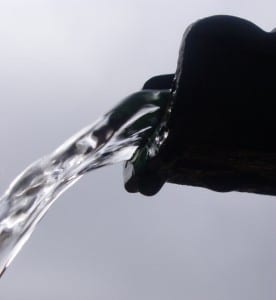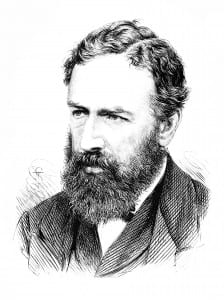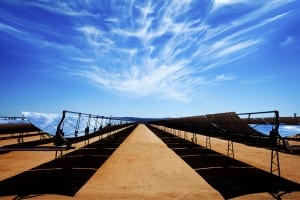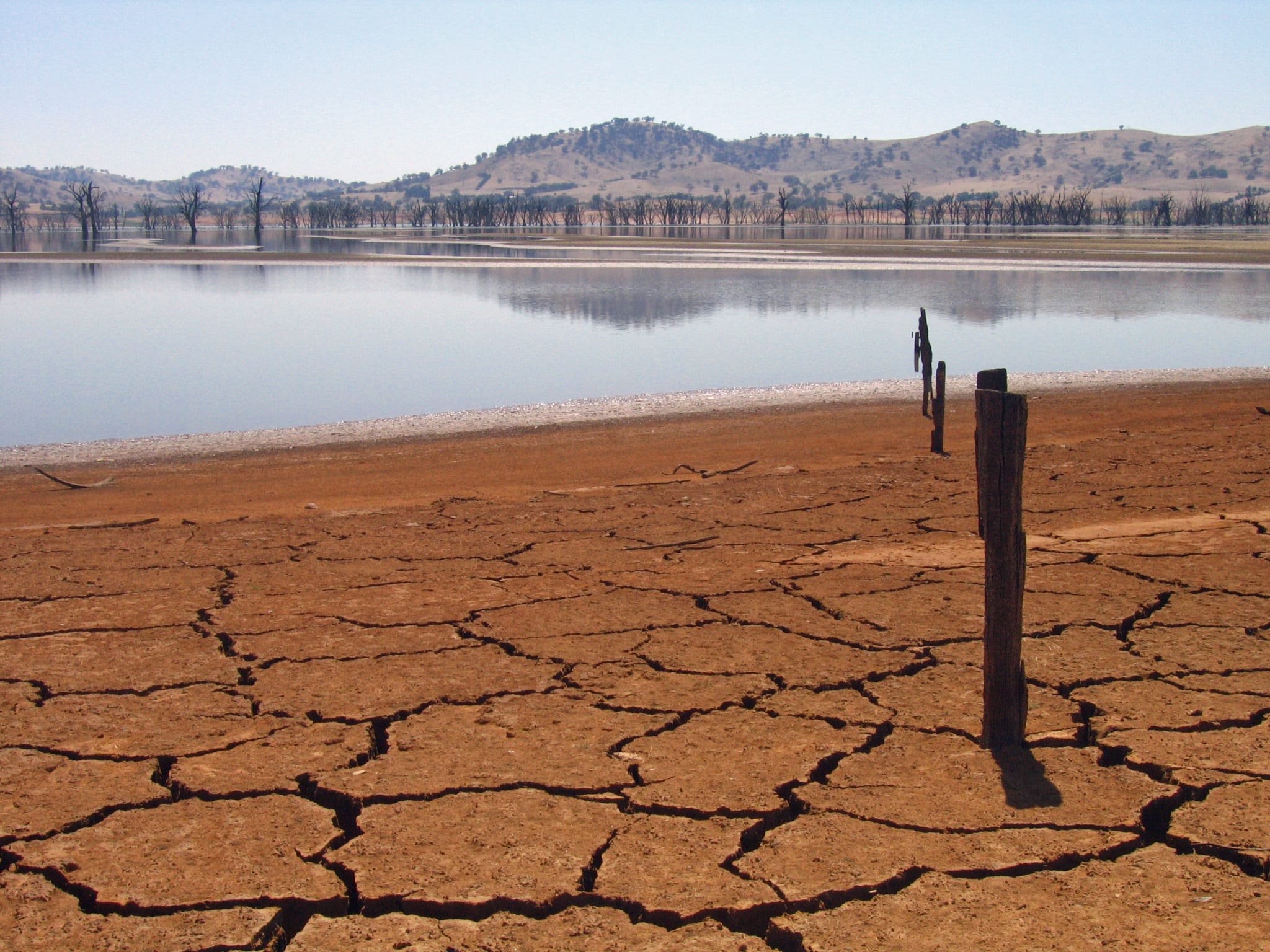A research journey from Italy to UCL
By ucqbna1, on 14 March 2016
 I was raised in Italy and every woman raised in Italy loves fashion, and don’t get me wrong, I really do love fashion. The region where I come from (Le Marche) produces some of the best and most famous shoes made in the country. When I was about to graduate I had to choose the topic of my master thesis. My professors were expecting a thesis on how business clusters could boost the Italian economy. I decided to do something different however because I did not want to follow the fashion path that everyone was expected to do. The first person who pushed me to think differently was my brother. He kept asking me: do you really want to work in fashion? This is not going to change people’s lives, it will make them more beautiful, but it will not solve any real issues. Read the rest of this entry »
I was raised in Italy and every woman raised in Italy loves fashion, and don’t get me wrong, I really do love fashion. The region where I come from (Le Marche) produces some of the best and most famous shoes made in the country. When I was about to graduate I had to choose the topic of my master thesis. My professors were expecting a thesis on how business clusters could boost the Italian economy. I decided to do something different however because I did not want to follow the fashion path that everyone was expected to do. The first person who pushed me to think differently was my brother. He kept asking me: do you really want to work in fashion? This is not going to change people’s lives, it will make them more beautiful, but it will not solve any real issues. Read the rest of this entry »
Athena SWAN in the Bartlett – Bringing Us Together
By ucfaete, on 7 March 2016
 Athena SWAN is the process for accreditation in higher education and research for their work to support women’s equal opportunities and advancement. The Bartlett, UCL’s global faculty of the built environment, chose to seek this accreditation as a whole, instead of the comprising Schools/Centres applying separately. This is a reflection on that process that started in October 2015 by one member of the self-assessment team.
Athena SWAN is the process for accreditation in higher education and research for their work to support women’s equal opportunities and advancement. The Bartlett, UCL’s global faculty of the built environment, chose to seek this accreditation as a whole, instead of the comprising Schools/Centres applying separately. This is a reflection on that process that started in October 2015 by one member of the self-assessment team.
The Bartlett is a diverse faculty, and that was what we found when it came to the challenge at hand. The first point was to compile a picture of the Faculty in terms of the various points along the education and career pathways available. As part of the Athena SWAN application we started gathering data on the share of women in different career stages, recruitment and induction, career progression, work place culture and supporting women’s careers. We were assisted in our data endeavours by numerous professional services staff across the Schools, UCL HR, and many more staff and colleagues via responses to interviews, focus groups, survey and a mini-workshop.
The Paris Agreement – A Fresh Start?
By ucftpdr, on 15 December 2015
On the 12th December 2015, after (just over) two weeks of intensive negotiations between nearly 200 nations, COP21 of the UNFCCC adopted the Paris Agreement – a new global commitment to address climate change. All parties were keen to avoid a repeat of the disastrous effort to secure such a global agreement in Copenhagen in 2009, where deep divisions and entrenched positions between counties and negotiating blocs prevented any substantive progress towards a common global agreement. Read the rest of this entry »
The Paris Agreement lacks focus on water
By zcfad21, on 15 December 2015
 The world is celebrating the adoption of the Paris Agreement, but the role of water under a changing climate is still sidelined: Time to ride the momentum.
The world is celebrating the adoption of the Paris Agreement, but the role of water under a changing climate is still sidelined: Time to ride the momentum.
One of the biggest highlights for the water community of 2015 was the adoption of a standalone Sustainable Development Goal on water and sanitation (SDG 6) on 25th September. The celebrations were high but not long after did the water community’s hangover commence: the first draft negotiating text for the 21st United Nations Conference of Parties (COP21) was released late October, 2015 and made no explicit mention to water resources in the upcoming climate change negotiations. As COP21 got underway, several revised versions of the proposed Paris Agreement were made available throughout the two-week negotiation marathon, but all failed to make a single reference to water. Not surprisingly, the final adopted text was no different. Read the rest of this entry »
But what will our world look like?
By ucfaete, on 11 December 2015
I am in the business of foresight, projections and scenarios. As a scientist I cannot tell you what the future brings nor what our world will be under +2, 4 or 6 degree warming. What I can say, is that as an individual I have deep concerns.
The climate change community has been applying scenario techniques to bridge gaps between the physical and social change that is envisioned due to climate change. The most recent addition is the introduction of so-called Shared Socioeconomic Pathways (SSPs) to describe alternate world futures (O’Neill et al., 2015). These futures can be coupled with different representative concentration pathways (RCPs) that correspond to the language of “+2/4/6… degree warming”. Despite the level of emissions or warming considered under a given pathway, what is clear, is that most of the scenarios pose challenges for our societies in the 21st century.
CSP vs PV – Understanding the current situation and future outlook
By Seyed Mohammad Mehdi Mohaghegh Ahmadabadi, on 30 November 2015
Throughout COP21 our staff and students will be blogging on climate change and sustainability.
Next month, the largest concentrated solar power plant (CSP) in the world will launch its first phase at the Moroccan city of Ouarzazate on the edge of the Sahara desert. The project consists of four plants and could generate 580 MW of electricity. This possibly will be enough to supply electricity to more than a million homes in Morocco. The first phase of the project, called Noor1, has the generating capacity of 160MW. Read the rest of this entry »
Commentary on SDG 6.4: Continued Lack of Storage Considerations in Water Scarcity Metrics
By zcfad21, on 16 November 2015
It remains unclear how the success of an ambitious goal to improve water efficiency and reduce water scarcity will be measured.
On September 25, 2015, the global development agenda for the next 15 years was set at the United Nations General Assembly following the adoption of the Sustainable Development Goals (SDGs). The inclusion of a stand-alone and integrated water goal (SDG 6) that moves beyond its predecessor (i.e. Millennium Development Goal 7: halving the amount of people without access to safe drinking water and sanitation), has been well received by the global water community as is clear from Expert Commentary on the positive implications of the various water sub-goals of SDG 6. Read the rest of this entry »
The Coal Question: Still Alive
By ucftrbl, on 3 November 2015
 This is a turbulent year for commodity markets, and yet, almost unnoticed it also marks the 150 years anniversary for one of the most important books ever written on the issue. William Stanley Jevons, a professor at UCL, published his book entitled ‘The coal question – an Inquiry Concerning the Progress of the Nation, and the Probable Exhaustion of Our Coal Mines’ in 1865. His book should still serve as a useful reference for contemporary debates. So, why should such an old book be of relevance for us today? The straightforward answer is to consider it as wellspring of knowledge about the interface of geology and economics, i.e. resource economics, but I’d like to also offer three avenues worth exploring and derive some propositions for the future. Read the rest of this entry »
This is a turbulent year for commodity markets, and yet, almost unnoticed it also marks the 150 years anniversary for one of the most important books ever written on the issue. William Stanley Jevons, a professor at UCL, published his book entitled ‘The coal question – an Inquiry Concerning the Progress of the Nation, and the Probable Exhaustion of Our Coal Mines’ in 1865. His book should still serve as a useful reference for contemporary debates. So, why should such an old book be of relevance for us today? The straightforward answer is to consider it as wellspring of knowledge about the interface of geology and economics, i.e. resource economics, but I’d like to also offer three avenues worth exploring and derive some propositions for the future. Read the rest of this entry »
Learn to build an anaerobic digester: ‘Build a Micro AD weekend’
By tjmscjo, on 15 October 2015
The third ‘Build a Micro AD weekend’ (3rd & 4th October)
Last weekend we had another sunny couple of days working on the project. Our engineer, Guy, delivered the digestor and prefeed tanks and the focus for the weekend was to finish the housing for the tanks, and to design the internal layout for all the systems that will be housed in the shipping container and make up the anaerobic digestor.
Early Experiences of Science
By ucftjm3, on 29 September 2015
 Over the summer, Emma Terama and I had the pleasure of hosting A-level students through the Nuffield Research Placements Platform at the UCL Institute for Sustainable Resources. The Platform provides students with hands on experience of a professional research environment, and is focused on science, technology, engineering, and mathematics subjects. Jasmin and Sharif spent five weeks at UCL ISR. Read the rest of this entry »
Over the summer, Emma Terama and I had the pleasure of hosting A-level students through the Nuffield Research Placements Platform at the UCL Institute for Sustainable Resources. The Platform provides students with hands on experience of a professional research environment, and is focused on science, technology, engineering, and mathematics subjects. Jasmin and Sharif spent five weeks at UCL ISR. Read the rest of this entry »
 Close
Close






